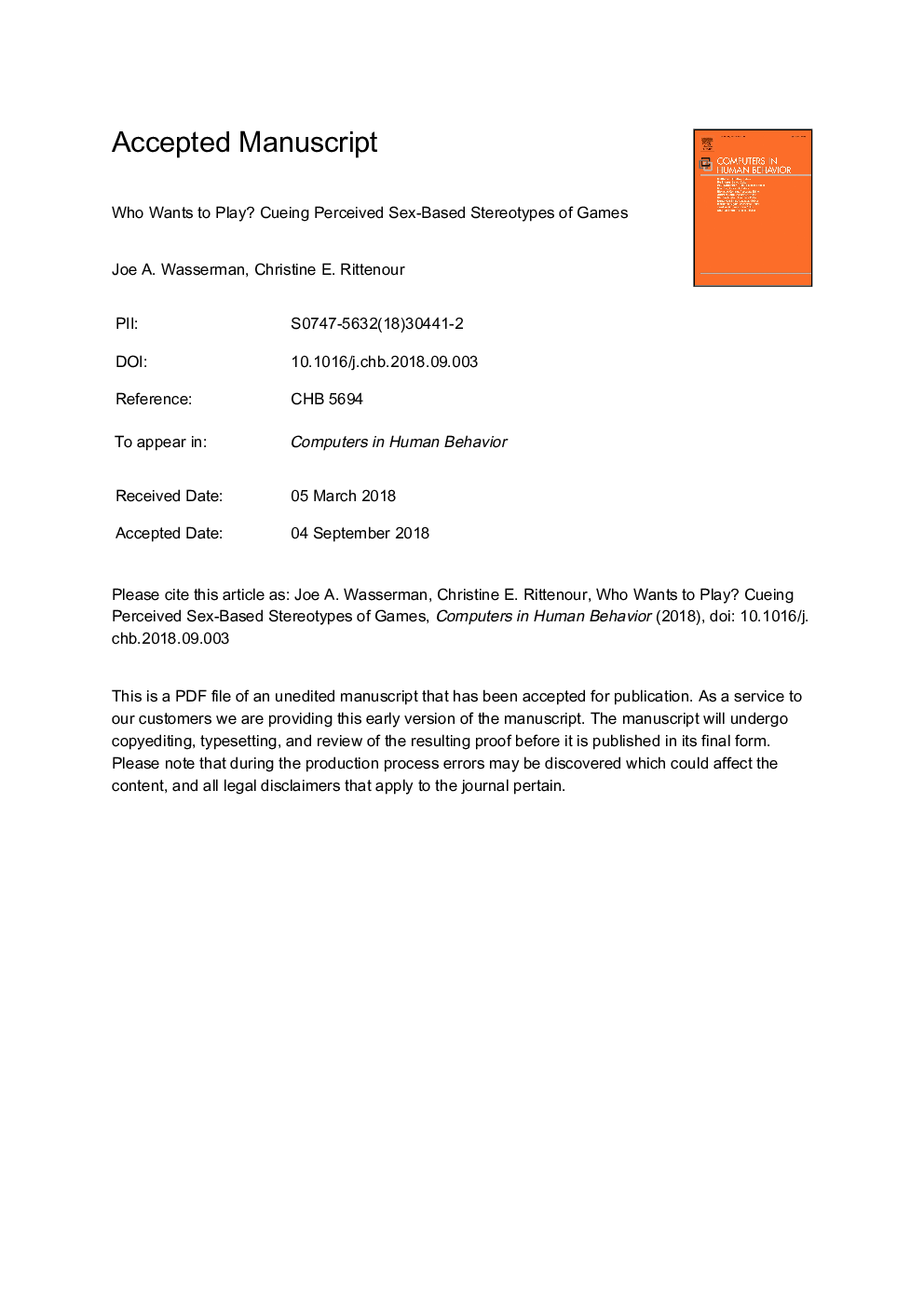| Article ID | Journal | Published Year | Pages | File Type |
|---|---|---|---|---|
| 11263420 | Computers in Human Behavior | 2019 | 43 Pages |
Abstract
Male/female-based stereotypes appear to be widespread, providing a potential barrier to women's participation and success in gaming contexts, such as recreational gaming, competitive eSports, and game-based learning. Differences in the strength of stereotypes associated with different kinds of games, which would have implications for reducing these barriers, are currently unknown. In an online between-participants experiment manipulating the platform (analog tabletop, digital tablet computer, digital desktop computer) of the game Splendor, 105 participants responded to questions asking them to separately rate their perceptions of men's and women's affinity for the game. Confirming extant research on gaming stereotypes, they perceived women as having less of an affinity for this game. While this trend emerged similarly between all platforms of the game depicted, the magnitude of this difference was less when participants had a stronger social group identification with gamers. These perceptions did not depend on social group identification with women. Given the potential for stereotypes to discourage women from gaming and threaten their performance and learning in gaming contexts, as well as the prominent and persistent public interest in gaming, we suggest researchers further examine stereotypes and identity in the study of diverse games, game platforms, and powerful perceptions.
Keywords
Related Topics
Physical Sciences and Engineering
Computer Science
Computer Science Applications
Authors
Joe A. Wasserman, Christine E. Rittenour,
